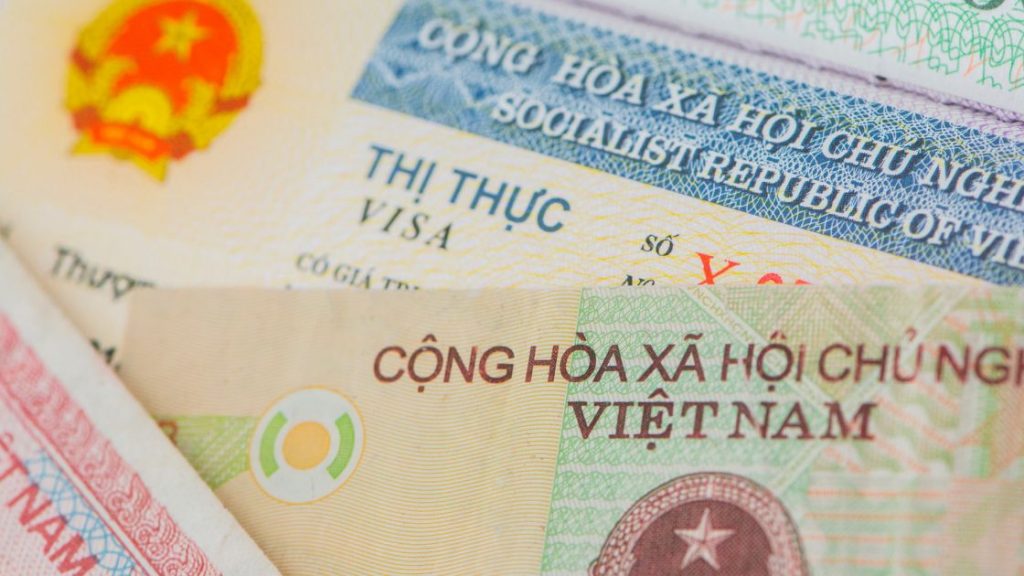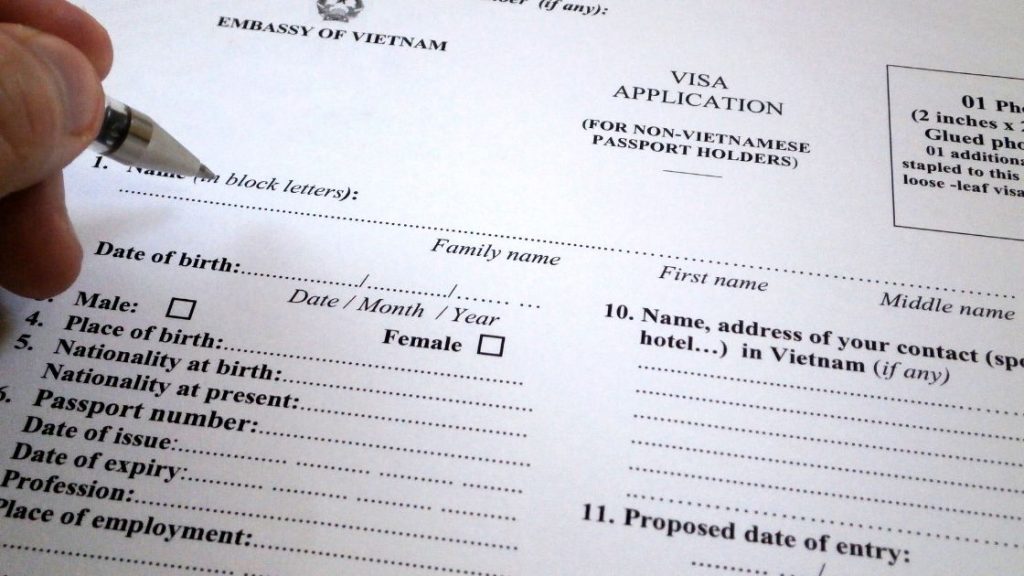Planning a trip to Vietnam? Whether you’re a history enthusiast, a beach lover, or simply looking to explore Southeast Asia, Vietnam offers something for everyone. However, before you pack your bags and set off on your adventure, it’s crucial to understand the Vietnam visa requirements to enter this vibrant nation.
Navigating the intricate maze of Vietnam visa regulations can seem daunting. Whether you’re a tourist, a business traveller, or looking to invest, understanding the nuances of Vietnam’s visa policies is essential. Here, we provide a comprehensive guide to obtaining a Vietnam visa, focusing on essential details for travellers worldwide.
Vietnam offers a variety of visa types to cater to different visitor needs. The options range from single-entry tourist visas to multiple-entry visas for business or investment purposes. Each visa type comes with specific requirements and costs, updated frequently to reflect the latest regulations by the Vietnamese Ministry of Finance. The most recent updates have been encapsulated in Circular No. 62/2023/TT-BTC, effective November 18, 2023.
Can I apply for a Vietnam visa online?
Yes!
You can easily apply for an E-Visa Vietnam online. The Vietnamese Immigration Department issues E-visas to foreigners valid for up to 90 days via an online, chargeable application process.
This strategic shift in visa policy is set to benefit more than just significant hubs like Hanoi and Ho Chi Minh City. Thanks to an expanded network of 13 airports, including those in Tier 2 and Tier 3 cities, and 16 land border gates supporting e-visas, accessing Vietnam is becoming more streamlined and efficient. This infrastructure enhancement provides an ideal setting for conducting business and exploring opportunities nationwide.
Who Needs a Vietnam Visa?

All foreign nationals intending to enter Vietnam must obtain a visa, except citizens from countries with visa exemption agreements. The type of visa you need depends on the purpose of your visit:
- Vietnam Normal/Tourist Visa: This visa is for those visiting Vietnam for leisure and tourism. It is typically valid for 30 days but can vary depending on your country of origin.
- Vietnam Business Visa: This visa is appropriate for visiting for business meetings, negotiations, or related economic activities.
- Vietnam Entry Visa: This is a general term for visas allowing entry to Vietnam, including tourist, business, and other visa types based on specific purposes like studies or diplomatic missions.
- Investor Visas: For those investing in Vietnamese enterprises.
- Work Permits: For expatriates planning to work in Vietnam.
Cost of a Vietnam Visa
Understanding the cost structure is crucial as it varies significantly based on the visa type:
Single-entry Visas
Priced at US$25, these are ideal for tourists planning a one-time visit.
Multiple-entry Visas
Costs for multiple entry visas escalate with the duration:
- Up to 90 days: US$50
- 90 to 180 days: US$95
- 180 days to 1 year: US$135
- 1 to 2 years: US$145
- 2 to 5 years: US$155
Visas for minors (under 14 years)
The cost is US$25 regardless of duration.
Additional fees are involved for transferring visa values or extending temporary residence cards, typically around US$5 to US$165, depending on the specific requirement.
How to Apply for a Vietnam Visa Online?

You can apply for a visa to Vietnam through traditional methods at Vietnamese embassies or consulates or opt for an e-visa through Vietnam’s official e-visa website.
Step-by-Step Guide to Applying for an e-Visa
- Visit the official e-visa portal: Access Vietnam’s official e-visa website.
- Complete the Application Form: Fill in the required details and attach the necessary documents.
- Pay the Visa Fee: Payment can be made using various secure methods.
- Submit and Track Your Application: You can track the status online once submitted.
- The Vietnam e-visa is a single-entry visa valid for up to 30 days. The application process is completed online, making it convenient for travellers worldwide.
- Visit the Vietnam eVisa Official Website to complete your application. You must upload a digital passport photo and a copy of your passport’s details page.
- E-visa applications typically take about 3 business days to process, and fees must be paid online at the time of application.
Vietnam Entry Documents Required:
- A passport, valid for at least six months beyond your date of entry.
- Passport-sized photos as specified in the application.
- Details of your itinerary, including accommodation and return ticket booking, if applicable.
- Additional documents may be required depending on the specific visa type.
- Upon arrival, ensure you have your visa ready, if applicable. Entry points are equipped to handle e-Visas and physical visas. Always check your visa validity and entry requirements before travelling.
Processing Time
- Tourist e-Visas: Usually processed in 3- 4 working days
- Long-term or Business Visas: Depending on the complexity, they can take a few weeks to a few months.
Check more details on Vietnam Immigration Portal
Countries Exempted from Vietnam VISA
Travelers from select Western European countries, Japan, and South Korea significantly contribute to Vietnam’s tourism sector. Check out all countries that enjoy visa-free stay in Vietnam-
| Country | Duration of stay |
|---|---|
| Chile | 90 days |
| Panama | 90 days |
| Cambodia | 30 days |
| Indonesia | 30 days |
| Kyrgyzstan | 30 days |
| Laos | 30 days |
| Malaysia | 30 days |
| Singapore | 30 days |
| Thailand | 30 days |
| Philippines | 21 days |
| Brunei | 14 days |
| Myanmar | 14 days |
| Belarus | 45 days |
| Denmark | 45 days |
| Finland | 45 days |
| France | 45 days |
| Germany | 45 days |
| Italy | 45 days |
| Japan | 45 days |
| Norway | 45 days |
| Russia | 45 days |
| South Korea | 45 days |
| Spain | 45 days |
| Sweden | 45 days |
| United Kingdom (Not applicable to BNO) | 45 days |
Once you have your VISA, planning your itinerary will be very easy. Vietnam has an excellent transport system with several public and private buses, limousines, trains, flights and cabs at your service.
Do You Need to Apply for a Visa In Case Vietnam Is Your Transit Location?
Many travellers often question what is required when their journey involves transit through Vietnam. By fully understanding the transit regulations, you can sidestep potential complications, minimize expenses, and enjoy a smooth journey.
Under Vietnamese law, foreigners must satisfy three conditions to qualify for transit through Vietnam:
- Hold a passport with a minimum validity of six months or have valid international travel documents.
- Hold a ticket that continues their travel to a third country.
- Show a visa for the third country (onward journey) unless they are from a visa-exempt nation.
Foreigners transiting in Vietnam and staying for less than 24 hours, remaining solely in the designated transit areas of airports or seaports as specified by the authorities, do not need to apply for a Vietnamese visa.
However, if your transit time exceeds 24 hours or you wish to leave the designated transit areas to explore Vietnam, you must obtain a visa.
In such situations, an E-visa is often the most convenient option. You can quickly apply for an E-visa through the official website of the Ministry of Public Security. This visa allows you entry through any of Vietnam’s ports, including airports, seaports, and land ports.
Vietnam’s visa policies are designed to be comprehensive, accommodating tourists, business visitors, and long-term investors alike. With proper planning and understanding of the visa requirements and costs, your visit to Vietnam can be a smooth and enjoyable experience. Whether you’re exploring the bustling streets of Ho Chi Minh City or the tranquil landscapes of Hanoi, ensure you’re well-prepared with the right visa for your travel needs.
Planning your trip to Vietnam can be as smooth as the serene Mekong Delta if you prepare your visa in advance. Whether exploring the bustling streets of Hanoi, enjoying the tranquillity of Ha Long Bay, participating in the Hoi An Lantern Festival, or savouring the culinary delights throughout Ho Chi Minh City, a proper visa is your first step to a memorable adventure in Vietnam. To make the most of your Vietnam journey, book your bus and limousine tickets in advance. Check all details on our Vietnam Bus Booking Guide.
Vietnam E-visa applications typically take about 3 business days to process, and fees must be paid online at the time of application.
The e-visa allows entry through specific checkpoints, including selected airports, land ports, and seaports. When you apply for the Vietnam VISA at the official website, check the valid ports of entry.
The cost of a Vietnam visa varies depending on the type and duration of the visa. A single-entry tourist visa starts at US$25, and costs increase to US$155 for multiple-entry visas valid for longer periods.
Typically, e-visas cannot be extended. If you plan to stay longer than 30 days, you should apply for a visa through an embassy or consulate before you travel.
As of 2024, citizens from 25 countries can enter Vietnam without a visa for 14 to 45 days, depending on their nationality. The official website has more details on the Vietnam Visa Exemption.
Yes, VISA Extensions are possible, but they must be done before your visa expires.
Refunds are generally unavailable, except when the visa is not granted. Refunds are provided when applicants have paid the fees but are subsequently found ineligible for passports, laissez-passers, or AB stamps. In these cases, the responsible fee-collecting authorities will issue refunds after informing the applicants of their application outcomes
However, refunds will not be granted in the following situations:
– Applicants decline the application results after being declared ineligible for passports, laissez-passers, or AB stamps.
– Applicants have made payments for visas or other immigration-related documents but are found ineligible or reject the results of their applications.
No, Indian passport holders require a visa to visit Vietnam. You can obtain your visa either online from the official website or by visiting the Vietnam Embassy or Consulate in India. If you are an Indian travelling to Vietnam, you can also get a visa on arrival at Vietnam’s international airports.